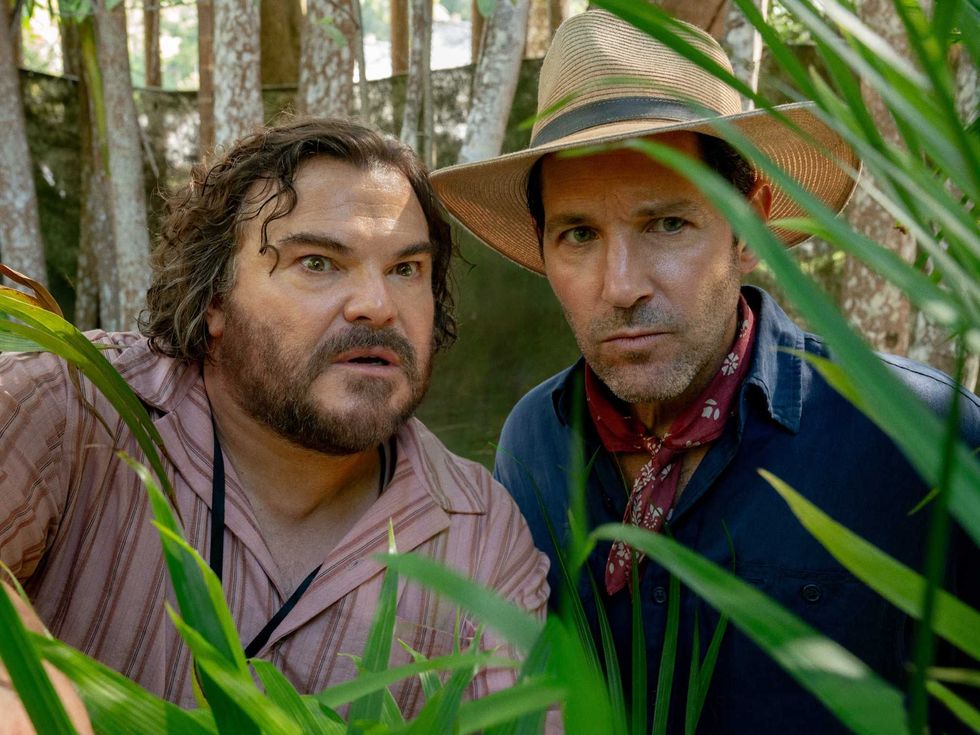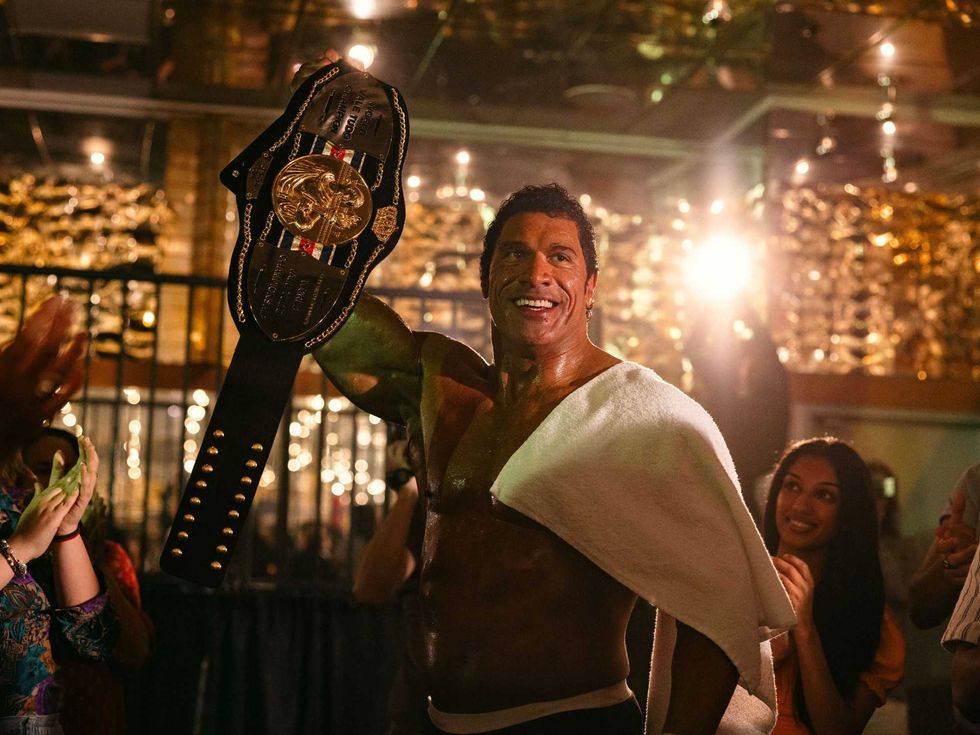At the Movies
Tiny Furniture's Lena Dunham is funny, unglamorously nude & maybe, the next bigthing
 Lena Dunham as Aura in "Tiny Furniture"
Lena Dunham as Aura in "Tiny Furniture" Real-life mother and daughter Laurie Simmons and Lena Dunham star in "TinyFurniture," written and directed by Dunham.Photo by Lance Edmands
Real-life mother and daughter Laurie Simmons and Lena Dunham star in "TinyFurniture," written and directed by Dunham.Photo by Lance Edmands
If you haven’t yet heard about Lena Dunham, you really haven’t been paying enough attention.
Ever since her seriously funny, semi-autobiographical Tiny Furniture won the top Narrative Feature prize last spring at the South by Southwest Film Festival, she has been praised and/or profiled in all the right places — The New York Times, Entertainment Weekly, The New Yorker, IndieWire, etc. — and widely acclaimed as a formidably talented triple threat (director, writer and actor) with the kind of unaffected and self-effacing appeal that can transform even jaded journalists (and grumpy critics) into impassioned admirers, if not gushing fans.
The 24-year-old daughter of noted New York-based artists Laurie Simmons and Carroll Dunham, Dunham graduated from Oberlin College in 2008 — one year after her first dramatic short, Dealing, premiered at the Slamdance Film Festival. She followed up that debut effort with other short films and two web series, then unveiled her first featurette, the 60-minute Creative Nonfiction, at SXSW 2009.
And now, in the wake of the warm reception for Tiny Furniture, Lena’s really putting pedal to the metal as she proceeds on her career path: She’s currently at work on two high-profile projects — Girls, an HBO sitcom she’s doing with Judd Apatow, and Dash and Lily’s Book of Dares, a quirky romantic comedy produced by Scott Rudin — that could very well solidify her status as a Next Big Thing.
All of which might seem a bit like too much, too soon, were it not for the fact that Tiny Furniture — which has its H-Town premiere, co-sponsored by CultureMap, Friday through Sunday at the Museum of Fine Arts, Houston — justifies all the hype. Indeed, this sharply observed, technically polished and surprisingly affecting indie dramedy easily transcends the specificity of its characters and their milieu to speak in a quiet but arresting voice to all of us about universal verities. It should strike a responsive chord in anyone who remembers — or is experiencing — that post-college period in life when you’re impatiently eager to invent yourself, yet reflexively hesitant to get started.
Lena cast herself in the lead role of Aura, an anxious 22-year-old who’s newly returned to her family’s Tribeca loft after breaking up with her boyfriend, producing a sparsely viewed YouTube video, and earning a film studies degree from a Midwestern university.
Aura is determined to emerge from the shadow of her successful artist mother (played, in a bold stroke of casting, by Laurie Simmons) and stifle sarcastic criticism from her ultra-ambitious younger sister (Grace Dunham, Lena’s real-life sibling) by striking out on her own. Until she can figure out precisely how to do that, however, she’s resigned to moving back into her old room, and taking a dead-end, time-marking job as a restaurant hostess.
The wispy plot proceeds at an unhurried pace in Tiny Furniture, as events unfold with a randomness that is more apparent than real. It’s easy to overlook until the final credits roll just how firmly Lena Dunham the writer-director is in command of her material, and how she subtly sustains a palpable sense of narrative momentum even as her scrupulously low-key film often seems as adrift as the character played by Lena Dunham the actor.
(Lena displays a notable lack of vanity on both sides of the camera. Neither model-thin nor obese — Entertainment Weekly has admiringly noted her “real-woman body” — she does little to glamorize herself, not even during a fleeting nude scene, and even less to ensure that the often prickly Aura remains consistently likable.)
There is, to be sure, a home movie quality to this micro-budget feature, and not just because Dunham filmed most of it in her parent’s Tribeca apartment. But there also is a solid ring of emotional truth in many scenes, particularly those where intelligent characters behave childishly, their spontaneity sometimes laced with cruelty, and where clever turns of phrase are employed as defensive shields or offensive weapons.
Inevitably, the question arises: How much of what we see and hear in Tiny Furniture is recycled from real life? That seemed like a good place to start when we caught up with Lena Dunham for a telephone interview.
CultureMap: There’s that classic scene in Annie Hall where Woody Allen deflates some pompous blowhard — in a way only Woody Allen could do in a Woody Allen movie — and then he turns to the camera and says, “If only life were like this!” There’s been a lot of talk about how autobiographical Tiny Furniture is. But how much of it would you say is totally made up — or even wish fulfillment?
Lena Dunham: It’s hard to come up with a percentage — because I think the percentage shifts almost every day. But I guess I would say about half the content in the movie is stuff that just kind of came from my head. In fact, in a way, it’s not at all autobiographical, because everybody’s playing a character, and nobody’s playing themselves in a really real way. So even when my mom or my sister does something that bears a close resemblance to a real event that happened in their lives — they’re still playing it as a character.
So in that sense, there’s almost nothing that’s 100 percent. And there’s no event that hasn’t sort of been shifted or re-imagined or made more cinematic.
So I think “If only life were like this” is sort of the best sentence to sum up my approach to writing the movie. Since hindsight is always 20/20 — what if you could go back and rearrange events, or make them clearer for yourself?
CM: How have you coped with backlash against your film? You know: Snotty things written by folks who complain that, oh, this is a movie about a pampered white New York girl, and she got to make a movie about her insular lifestyle, and I could have made a movie, too, if I had well-connected parents like hers, and blah, blah, blah. That sort of thing.
LD: You know, it’s funny — I was kind of always aware of what the criticisms of Tiny Furniture could be even before the movie entered the world. And so I’ve just been so grateful every time there’s been kindness shown to it. And every time somebody says something rude — it’s disappointing, but you also sort of expect it. I think the fact that I was raised by two creative people, and I grew up seeing the ebbs and flows of their creative careers, and the kinds of criticisms people get just for doing what they do — I was kind of ready for it.
And I knew this was not the kind of thing — well, I don’t know what movie has no haters, but I knew my movie definitely was not the kind of movie that would have no haters. So I was ready for it.
CM: Tiny Furniture focuses on a specific period in life — that time when you’re just out of college, unclear about how to pursue your goals, and more than a little anxious about the challenge of really starting your life. That may seem like a natural subject for filmmakers. But when you stop to think about it – there really haven’t been that many memorable films on this subject. Once you get past, say, St. Elmo’s Fire…
LD: Well, you’re right, I feel like there haven’t been that many movies about it. There was one that was so deeply influential for me, which is The Graduate. But you’re right — I think people feel there have been more movies about this than there really are, because The Graduate is so omnipresent, and has such a big appeal for so many people.
And I guess [Noah Baumbach’s 1995 indie dramedy] Kicking and Screaming is another one. That one’s about people who are so scared of life after college that they basically decide not to leave. That’s sort of the premise of that. It’s still in the collegiate environment, but with people who can sort of see over the edge of the cliff, and are trying to figure out if they want to jump or not.
But it’s true that it’s a time in life that maybe people don’t want to explore because it feels so socioeconomically specific, and it’s not quite as clean and tidy as a coming of age story, or a first falling in love story. But I do remember, when I was living through that period, that I was very conscious, like, “This is different from anything else I’ve been through.”
CM: Do you remember being scared during that period?
LD: Yeah. I’m sort of a Nervous Nelly to begin with. But, yes, I was scared. Because I think it was the first time when I thought, “Oh, my God! I cannot see what my future looks like.” Up to that point, I’d always been in school, or headed back to school, or headed to summer vacation. My life always felt sort of pre-ordained. And this was the first time when there wasn’t a clarity about where I was headed.
That was very disorienting. And made me think a lot. And made me scared.
CM: What sort of jobs did you get right after college?
LD: Well, they were actually kind of awful. Let’s see: I was a hostess in a restaurant — for one and a half months. And not very good at it.
CM: So that part of Tiny Furniture really is autobiographical.
LD: [Laughs] Yes, that part is totally autobiographical. And I was a babysitter. I worked in a clothing store. I was a secretary to a lawyer. So I sort of ran the gamut of stuff. And during each job, I felt, “I’m not good at this. I’m not cut out for anything other than thinking I know how to make movies. So let’s hope something shifts here.”
CM: During this period, it must have been helpful that your parents also are artists. Like, they didn’t encourage you to go back to school and get a business degree or something, right?
LD: My parents were great. I wouldn’t describe them as indulgent. But they were, like, “Do what you have to do to make your work.” Because they’d been through the same thing.
CM: By the way, is your father camera shy or something? He’s kind of conspicuous by his absence from your film.
LD: Actually, he is a little camera shy. But also, I was interested in exploring something that was, in want of a better word, a little bit dad-less. It was more of a story that I wanted to tell about women. And so I did. My dad wouldn’t have wanted to do it anyway — but it was sort of a better movie because he didn’t want to do it.
CM: But because he’s not in Tiny Furniture — have some people just assumed your parents are divorced?
LD: Yes. It’s so funny: My mom got an e-mail the other day from someone who wrote, “Are you single now?”
CM: Perhaps it was a guy who hoped she was single?
LD: Well, actually, it was a woman. So it was someone who either wanted to date my father, or wanted to experience some schadenfreude from the breakup of what seemed like a good marriage. I’m not sure which.
CM: A couple of final questions. First off: As you’re enjoying your first flush of real success, do you think it’s important to keep around you people who’ll tell you – well, when you’re fucking up?
LD: Yes. I think that’s important. And I think that everyone in my life is all too willing to tell me when I’m fucking up. I am really close to my family. And I’m working with people like Scott Rudin and Judd Apatow — who are not in the business of fluffing your ego. They’re in the business of making really good stuff. I think people get into a kind of danger zone when they start listening only to …
Well, I love my agents. But when you start listening only to your managers and agents, people who aren’t coming at it from the creative side, you’re in trouble. But if you have really great creative influences in your life, that’s a really good system of checks and balances.
CM: On the other hand, are you ever tempted to call up an ex-boyfriend and say something like, “Hey, did you see that interview with me in The New York Times, huh? How do you like me now, buster?”
LD: [Laughs] Oh, my God. No. Well, maybe, secretly, I hope that they’ve seen it. I know, you always imagine that you’ll have all of these “I’ll show you” moments. But the amazing thing about life — the beautiful thing about life — is that when good stuff happens, that is not the first thing that is going through your mind. So I was very relieved that my first reaction to having a New Yorker profile was not to call up my ex-boyfriend who reads The New Yorker and be like, “Check it out, jerk!”
Really, my first reaction was, wow, this is very interesting and humbling. And I’m really glad my family didn’t get smeared in it or anything. And then I moved on.
It’s sort of like when I realized that I didn’t make movies just so I could go to film festivals and have people applaud at the end. It was a real relief to find that out about myself.
Editor's note: Tiny Furniture plays at 7 p.m. Friday, 7 p.m. Saturday and 5 p.m. Sunday at MFAH. Joe Leydon will introduce the film and give some insights prior to the Friday night screening.











